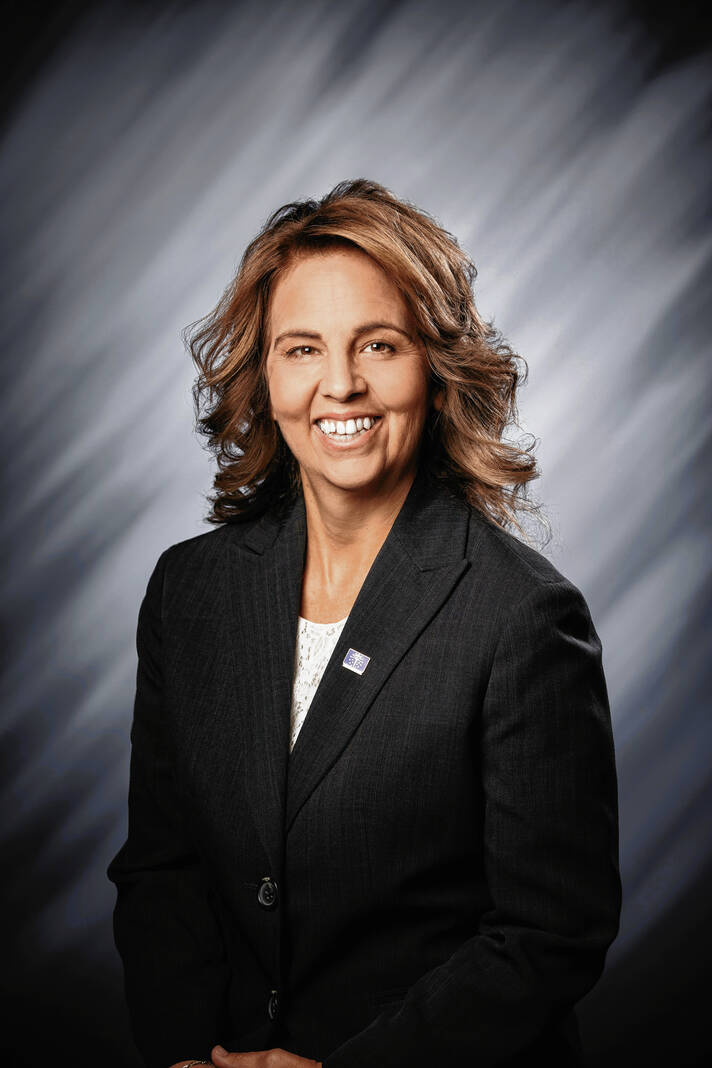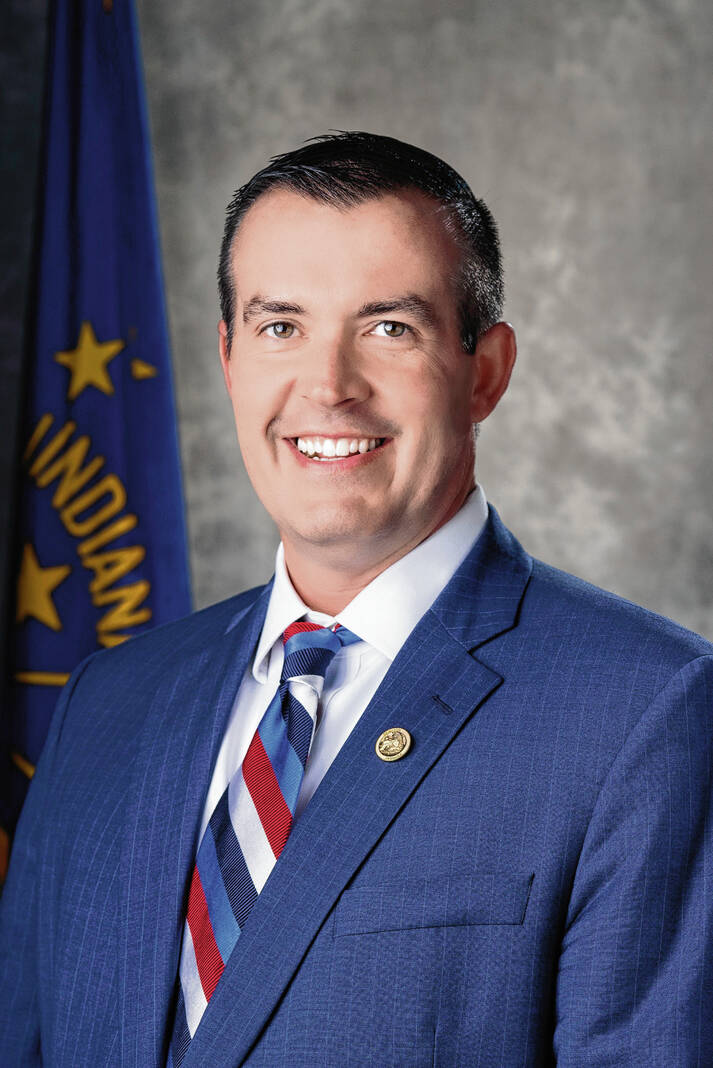The 2023 session of the Indiana General Assembly has begun, and lawmakers have already started sifting through more than 1,700 bills that would impact the state’s future.
This year, the Legislature is in its biennial budget session, where lawmakers are tasked with drafting the state’s next two-year budget. The session is expected to adjourn by April 29.
Every Johnson County lawmaker has filed a bill for this session. Here’s a look at some notable bills local lawmakers have filed so far.
Education

Proposed changes to high school curriculum which would, among other things, expand work-based learning in Indiana high schools are laid out in House Bill 1002, authored by Rep. Chuck Goodrich, R-Noblesville. Local lawmaker Rep. Michelle Davis, R-Whiteland, is one of three co-authors of the bill.
The bill seeks to expand work-based learning in Indiana high schools, including apprenticeships, internships and certifications. It would also create a framework for students to earn a post-secondary credential before leaving the K-12 system, according to the latest version of the bill.
Career scholarship accounts, similar to the state’s education savings accounts, would also be created as part of HB 1002. The number of scholarship dollars a student would receive to pay for apprenticeships, coursework or certifications is based on a calculation of the state dollars that their school receives, the latest version shows.
The bill would also allow students to apply funds from the 21st Century Scholars program — a free college program for low-income students — to apprenticeship programs. It also requires high schools to hold career fairs.
Senate Bill 188, authored by Sen. Jack Sandlin, R-Indianapolis, would require school board candidates to have their political party affiliation, or independent status listed on ballots starting in 2024. It would also standardize language for school board vacancy-causing events, along with the method vacancies are filled, the bill shows.
Gender transitioning
House Bill 1220, authored by Davis, would prohibit medical professionals from providing gender transitioning or puberty-blocking procedures to minors. This is the second time Davis has authored a bill relating to transgender youth, as she authored the legislation banning transgender girls from girls’ sports last year.
HB 1220 also explicitly prohibits health care services/facilities from including gender transition procedures for a minor when the facility is owned by a state, county or municipal-owned entity, or if the physician or other practitioner is employed by one of these entities, the latest version of the bill shows.
If the bill becomes law, violations could result in civil actions. It also authorizes the Indiana Attorney General’s Office to investigate and enforce the provisions of the bill, if needed.
Davis is also the co-author of HB 1232 — authored by Rep. Ryan Lauer, R-Columbus — which would prohibit the Indiana Department of Child Services from classifying a report of child abuse or neglect as substantiated solely based on the parent or guardian referring to and raising them consistent with their biological sex.
This prohibition would also extend to situations where a parent or guardian declined to consent to a minor receiving a specified medication, procedures or therapies that seek to alter or affirm the child’s perceived sex or gender.
Crime
A bill from freshman Rep. Craig Haggard, R-Mooresville, would enhance the penalties for

drug dealers who deal substances that result in serious or “catastrophic” bodily injury.
HB 1325 would make it a Level 2 felony if a person manufactures or delivers controlled substances when the drug’s use caused serious bodily injury. If it causes catastrophic injury, the penalty is upped to a Level 1 felony, the highest level of charges other than murder, the latest bill text shows.
It also enhances the penalty for those charged with child neglect while dealing in fentanyl, as the charge would be upgraded from a Level 6 felony to a Level 5 felony, the bill says.
If the bill becomes law, it would likely increase the Indiana Department of Correction’s offender population. IDOC could also see expenses increase by more than $600,000 max, according to the bill’s fiscal impact statement.
On the Senate side, Senate Bill 286, authored by Sen. Aaron Freeman, R-Indianapolis, would change state law so that habitual offenders are not entitled to good time credit. Good time credit is the reduction in an offender’s term of imprisonment awarded for their good behavior while incarcerated.
If the bill passes, it is expected to increase IDOC’s offender population by 418 people before the end of the fiscal year 2028, according to the bill’s fiscal impact statement.

SB 136, authored by Sandlin, would define persons who are prohibited from possessing or carrying a firearm and require state judicial officials to create a system to help determine whether someone is prohibited. It would also order both the courts and the Indiana State Police to enter information into the system after a judgment of conviction is made.
The estimated cost of developing the system is between $50,000 to $100,000, according to the bill’s fiscal impact statement.
Another of Sandlin’s bills, SB 295, would specify a process for the state to request, and a court to order, the release of mental health records of an allegedly dangerous individual. Courts that have issued a warrant to seize a firearm, or found probable cause that an individual is dangerous, would have the option to issue an order preventing the individual from possessing a firearm until a hearing is held, the bill’s text shows.
Businesses and taxes
HB 1279 would create a new chapter in the Indiana Code governing third-party delivery

services. Authored by freshman Rep. Robb Greene, R-Shelbyville, it would legally define third-party delivery services, like DoorDash, and would prohibit them from providing services related to the creation, processing or delivery of an online order without the express consent of restaurants to do so.
Other prohibitions of the bill include forbidding a third-party delivery service from charging a restaurant a “core delivery service” fee, commission or charge that exceeds 10% of the purchase price for each online order. It also prohibits these services from charging a restaurant any other fee that is separate from the “core delivery service” fees, according to the bill.
Additionally, the bill requires third-party delivery services to give customers an itemized breakdown of the cost of an order, the bill shows.

SB 281, authored by Freeman, would increase the cost threshold for the business personal property tax exemption from $80,000 to $250,000. Freeman filed this same bill last year, and it was met with opposition from local government representatives because of the impact it could have on local revenues.
Businesses that qualify could save about $39.4 million in personal property taxes beginning in 2025, and tax bills for other properties would increase by about $21.7 million, according to the fiscal impact statement for the bill. Homestead properties would take the bulk of the tax burden shift.
Annual local revenues would also decrease by $18.1 million statewide, according to the bill’s fiscal impact statement. Cities and towns and school corporations could take the biggest hits in lost revenue.
Rep. Peggy Mayfield, R-Martinsville, is also expected to introduce similar legislation in the House.




